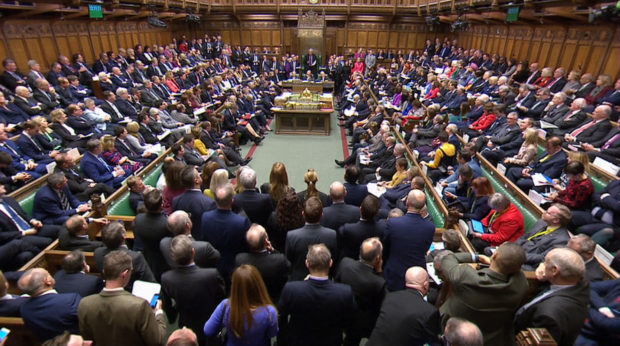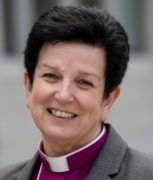We are hearing a great deal about divisions right now.
We are told that we are a divided country: divided in opinions, divided in experiences of life. We are struggling to agree on Brexit, and in parliament acrimony and infighting are rife. Right now, when we hear the Speaker roar ‘Division’ we do not expect much agreement to follow.
It is rare to find anywhere a group of people one in heart and mind. Our current experience is that we find disagreement easier than agreement, division more natural than unity. Some days it seems like there is no help for us.
Now surprising as it may seem, the Christian Church might have something to say about how we can find unity in the midst of diversity. This is surprising because the Church has a really bad record when it comes to falling out and splitting. You do not have to know much history, especially Scottish history, to be aware that when Christians fall out, they tend to do this big time. What began with rows and walk outs, quickly led to separation, and in some circumstances full on aggression and violence. The Church might seem to be the last place where anyone could learn how to live in a community containing difference where everyone is respected.
This week the issue has become particularly pertinent to me. One of the churches in my own diocese has voted to leave my denomination, the Scottish Episcopal Church. The church involved, and I myself, have decisions to make about how we can disagree without harming each other.
Whenever we disagree with others, whether that is in family life, or among friends, in clubs and churches, or in political parties, there is a natural process that follows. First of all we do not agree. We think that the other person is wrong, and that is what they think of us. We hold our ground and do not give in. If tensions rise then we begin to notice other things that are ‘wrong’ about them. We build a case against the other, which helps us to justify our own opinions and that fact that we are not going to change or compromise.
The longer this goes on, the more that we can project onto the other. Soon the other person is a monster, unreasonable, not at all someone we would want to be in relationship with. In our minds and in our lives we can, at this point, just dismiss them and move on.
In the Church we are learning that when we fall out and separate from each other this is a tragedy. When we divide we are much poorer in all aspects of life. We achieve more, help more, enjoy more of life, when we do things in community with other people, when we do things together.
In fact, we are learning that if we want to make a significant contribution to the world, then we would do much better if we could learn how to stay together, even though we may be very different from each other in a number of respects. Jesus said ‘ A house divided against itself cannot stand’. This is as true for families and communities, councils and governments as it is for the Church.
For Christians this is the Week of Prayer for Christian Unity. This week we pray that we would learn how to mend divisions and come together. We pray, but we do more than this.
Unity in diversity means keeping a firm eye on the things that we share, the things that we have in common. It means looking for what is good in the other, before looking for the things with which we disagree. This week Christians from denominations that separated, often violently, long ago sit down together and learn how to be friends once again. After all, we share the same concerns about life. We all want to support our families and friends, we all share an anxiety about the future, we all want to be loved and accepted and find friendship. These are the essential things, the glue that holds us together. If we can begin with the things which we share, and through taking time to listen really come to understand how life is for someone else, then it is much more difficult to walk away when we find that there are some things about which we profoundly disagree.
In our differences and diversity it is time for us to become mature and grown up. It is time for us all, from the politicians in parliament through to the leaders of churches, to behave in ways that give a really good example to the children and young people of our nation.
We need to be showing that it is possible to disagree with grace. Then we will help them to remember that we are better together.
The Rt Rev Anne Dyer is Episcopalian Bishop of Aberdeen and Orkney and Scotland’s first female bishop

